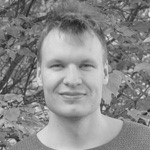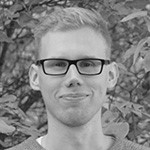Positions are now open in our Master’s Degree Programme, where you can choose between three disciplines belonging to the field of Medicinal and Radiopharmaceutical Chemistry

”I find this programme very well balanced because I can study tiny chemical details, but on the other hand I also have to understand the bigger picture.”
Saara Nenonen

”I find natural compounds fascinating and this programme has given me the opportunity to study these molecules far beyond the limits than I could have ever imagined.” Joona Arvola

“This programme offers a good combination of educative lecture courses and hands-on laboratory courses that give a real impression of what the field of phytochemistry has to offer.”
Valtteri Virtanen
Our programme provides you with strong knowledge on one or more of the following topics: design and synthesis of new drugs, radiolabelling and enhanced targeting of drugs, or screening, isolation and modification of new drug candidates from bioactive plants. In addition, you will learn to master the state-of-the-art methods needed for the full identification of drug molecules and for their quantitation from different types of tissues and metabolite mixtures.
Our approach on medicinal and radiopharmaceutical chemistry is a unique combination of research areas that are closely related, but that require different type of expertise, if you really want to master one of the areas. All of the three options we offer you are represented by well-established, top of the line research groups: Bioorganic Group, Radiopharmaceutical Chemistry Group, and Natural Chemistry Research Group. You need to choose your orientation between these groups, but you may take courses from all of them. This way you are able to specialize, but at the same time acquire wide enough knowledge on the relevant topics related to the chemistry of drug development.
With Natural Compound Chemistry you learn to master numerous chromatographic and mass spectrometric techniques together with other methods used for characterization and activity measurement of plant-derived biomolecules. The Natural Chemistry Research Group is specialized into the screening of the plant kingdom for bioactive molecules, especially large polyphenols such as ellagitannins. The screening phase can be accompanied by purification of active substances and measuring their structure/activity relationships, or developing new activity methods.
At the Department of Chemistry we have recently updated NMR facilities with modern 500 and 600 MHz magnets with cryo-probes that facilitate operation at low drug concentrations. We have direct access to UPLC-MS/MS instruments with both triple quadrupole and high-resolution mass spectrometry detectors. An efficient ECD spectrometer complements the equipment needed for the accurate identification of the produced and purified drug candidates. To know how to master these equipment and techniques is a true advantage to the chemist who graduates from our programme.
For more information:
Click: http://masters.utu.fi/programmes/medicinal-and-radiopharmaceutical-chemistry/
Email: j-p.salminen(at)utu.fi
